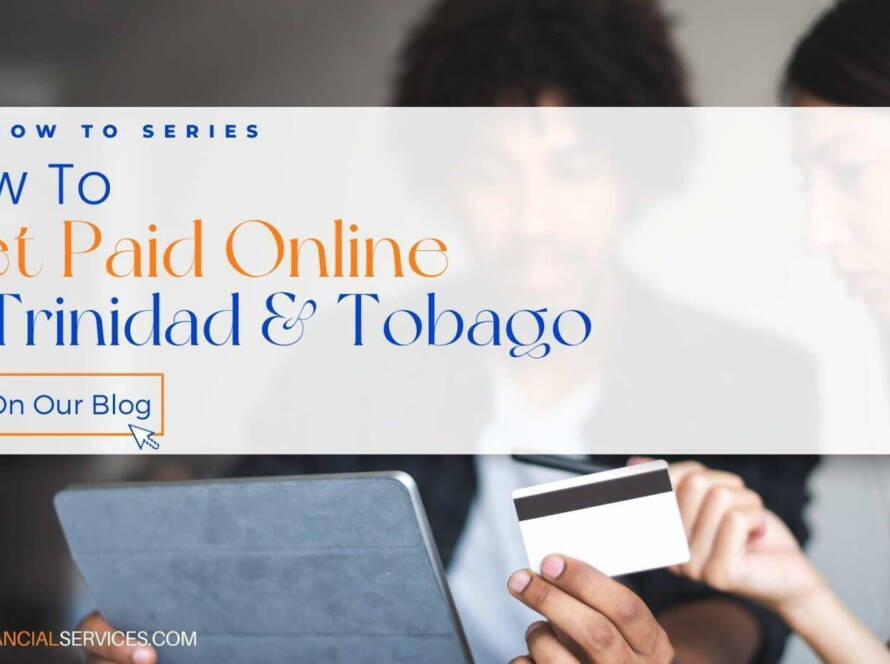By – nsjfinancialservices
19.09.22 06:35 PM
VAT is the government’s way of taking a percentage of the profit you make on a sale. VAT is charged in the country where a business is based, which means that if your business is located in Trinidad and Tobago, you’ll have to include VAT in your sales tax calculations.
VAT is an acronym for Value-Added Tax. VAT is charged on all types of goods and services sold in Trinidad and Tobago. Taxable goods and services include food, drinks, cosmetics, clothing, cars, air fares and hotel accommodation. Most goods and services in Trinidad and Tobago are subject to VAT at a rate of 12.5%.
However, some items are exempt from VAT:
- Most medical supplies
- School supplies
- Food for babies under the age of one are exempt from VAT.
Some food items that are not exempt from VAT are prepared by people who cook for private parties or have their own catering business (such as a wedding caterer).
Another way to think about it is that VAT is included with the total cost of your product or service when you calculate your sales price. The sales tax rate depends on the type of product or service you sell. For example, if you are a restaurant owner selling meals that cost $20 each, then you would charge 10% sales tax on each meal – $2 per meal x 10% = $2 tax per meal.
Who has to register for VAT?
(The information presented is for businesses operating in Trinidad & Tobago. Information will vary per country & state )
- Individuals or businesses that sell goods or services worth TT$500,000.00 or more in a twelve-month period.
- Individuals and businesses who forecast sales of TT$500,000.00 or more in a twelve-month period.
Can you cancel?
(The information presented is for businesses operating in Trinidad & Tobago. Information will vary per country & state )
- Individuals or businesses that sell goods or services worth TT$500,000.00 or more in a twelve-month period.
- Individuals and businesses who forecast sales of TT$500,000.00 or more in a twelve-month period.
How do you register?
You must complete a VAT registration form and submit supporting documents to the Inland Revenue Division
- Sole proprietors must fill in the Form A.
- Companies and partnerships must fill in the Form B & C.
- All applicants will be interviewed and are required to produce some form of identification at the interview.
Interested in applying for VAT? Let NSJ help!
The following documents must be submitted with your application:
Sole Proprietors
- Completed Form A application form.
- Certificate of Registration of Business Name if using a trading name.
- Board of Inland Revenue (BIR) file number.
- Projected Income Statement for the next 12 months signed and dated by the preparer or owner.
- Evidence to substantiate that the business intends to make commercial sales of TT$500,000.00 during the coming year. This could be in the form of a sales forecast.
Partnerships
- Completed Form B application form signed by a partner.
- Completed Form C application form, with the names, home addresses and signatures of all partners.
- If there is a partnership name other than the names of the individual partners, the certificate of registration of business name issued by the Registrar General’s Office.
- Board of Inland Revenue (BIR) File Number for the partnership.
- Projected Income Statement for the next 12 months (signed and dated by preparer/owner) to show that the business intends to make over TT$500,000.00 in commercial supplies in the year following its VAT Registration.
Limited Liability Companies
- A letter of representation, where the company is represented by someone other than the Directors, i.e. a third party who must have proper identification.
- Completed VAT 1 application form signed by a director.
- Completed VAT 2 application form, with the names, home addresses and signatures of all directors.
- B.I.R. and P.A.Y.E. File number.
- Certificate of Incorporation or Certificate of Continuance.
- Articles of Incorporation or Articles of Continuance.
- Notice of Directors or Notice of Change of Directors.
- Notice of Address or Notice of Change of registered office.
- Cash flow projection for 12 months – signed and dated by a director or the Company’s Accountant.
- Evidence of commencement of business e.g. sales/income invoices, contracts, customs documents, purchases/expenses or bank statements.
- Statement of actual gross sales/income to date – signed and dated by the Company’s Director or Accountant.
- List of assets of the business and proof of ownership.
- Name and address of banker.
- Accountant’s name, address and contact numbers.
- Major customers’ names, addresses and contact numbers.
To de-register, a request must be made in writing indicating the date the business has ceased trading or that the business’s annual revenue no longer exceeds TT$500,000.00, requesting de-registration.
Where do you register?
NSJ offers VAT registration services! We handle all the document preparation for you and the application!




